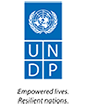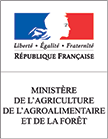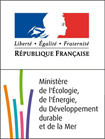Underway for almost a decade, REDD+ still has not yet reached the potential originally envisioned. This notwithstanding, it remains a leading policy and technical option for mitigating climate change within and beyond the forest sector. Building on years of research, practical, and policy experience, the speakers in this session will take stock of the past, present, and future of REDD+.
The now complete UNFCCC methodological framework for REDD+ consists of the Warsaw REDD+ Framework (adopted in 2013) together with draft decisions at the UNFCCC’s 42nd SBSTA meeting, June 2015 in Bonn (awaiting final decisions at COP 21 in Paris).
REDD+ is moving towards policy implementation in participating countries. At the same time, other mechanisms (zero-deforestation pledges by the private sector and rest + supported/leveraged governanceot match up to what is INDCs) are coming into play, and these could create both synergies and constraints. In addition, business-as-usual keeps pressure on forests. It is timely to look back on eight years of REDD+ experience and research and other development strategies to curb emissions to assess how forest-based climate change mitigation can be fully realized in practice.
CIFOR will draw on seven years of global comparative research on REDD+. The GCF Task Force will showcase innovative bottom-up approaches to low-emissions rural development. The Earth Innovation Institute will address the synergies and trade-offs in the use of forests and agriculture for development and climate change mitigation. A REDD+ negotiator will reflect on the evolution of REDD+ in the international policy arena.
The speakers will address the challenges encountered in realizing REDD+, and the optimum conditions under which forest-based climate change mitigation can be achieved. This discussion is necessary to prepare national and sub-national governments for successful REDD+ implementation in the near term and will set the stage for relevant supportive research. There is a need for accelerated policy learning about REDD+ in the run-up to implementation of a new climate agreement in 2020. This session intends to support that process.
What three key questions will the panel address?
- What are the policy/technical opportunities and barriers in REDD+, and what changes should be made?
- How can REDD+ be harmonized with broader social, economic, development, and trade initiatives (low emissions rural development, green economy, zero deforestation)?
- How can the international policy process best support forest-based climate change mitigation?
Background reading
CIFOR Global Comparative Study on REDD+
How are INDCs and NAMAs linked?
Prediction, precaution, and policy under global change
Research and financial innovations in support of Brazil’s INDC process
Mato Grosso: Brazil’s Agricultural Giant on the Pathway to State-Wide Sustainability







































